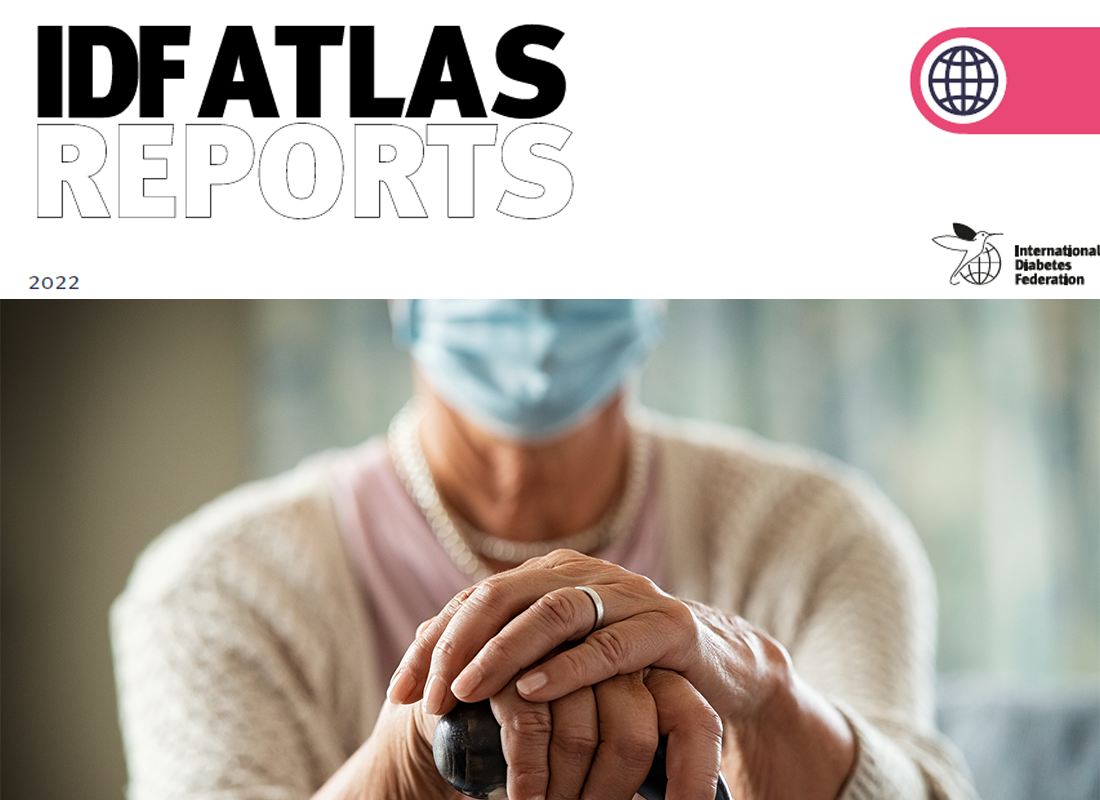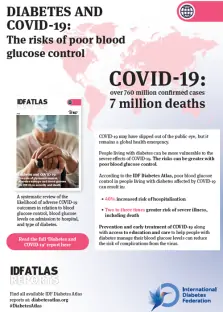COVID-19 remains a global health emergency, with over 750 million confirmed cases and 7 million deaths caused by the virus. People living with diabetes can be more vulnerable to the severe effects of COVID-19.
A weakened immune system and a virus that thrives in high blood glucose environments are two reasons for this vulnerability. Studies have shown that poor blood glucose in people living with diabetes affected by COVID-19 can result in:
- 40% increased risk of hospitalisation
- Two to three times greater risk of severe illness, including death
Nevertheless, around 98% of people infected to date have survived.
COVID-19 spreads through air droplets and can survive for several hours to a few days in various conditions. The virus transmits through close contact with an infected person or contaminated surfaces, followed by touching the mouth or nose.
COVID-19 vaccination is widely available and can considerably reduce the risk of catching the virus. IDF advises people living with diabetes to get vaccinated.
- Make sure you have all relevant contact details in case you need them.
- Pay extra attention to your glucose control. Regular monitoring can help avoid complications caused by high or low blood glucose.
- If you show flu-like symptoms (raised temperature, cough, difficulty breathing), it is important to consult a healthcare professional. If you are coughing up phlegm, this may indicate an infection, so you should seek medical support and treatment immediately.
- Any infection will raise your glucose levels and increase your need for fluids, so make sure you have a sufficient water supply.
- Make sure you have a good supply of the diabetes medications you need. Think what you would need if you had to quarantine for a few weeks.
- Make sure you have access to enough food.
- Make sure you can treat sudden blood glucose drops.
- If you live alone, make sure someone you can rely on knows you have diabetes, as you may need assistance if you get ill.
- Keep a regular schedule, avoid overworking and have a good night’s sleep.

Diabetes and COVID-19 report
Diabetes is a strong risk factor for adverse COVID-19 outcomes. In 2021, the IDF Diabetes Atlas reported that individuals with diabetes experience a substantially greater likelihood of hospitalsation and death as a result of COVID-19 infections compared to those without.
A systematic review was performed in 2022 to assess the likelihood of adverse COVID-19 outcomes in relation to glycaemic control, blood glucose levels on admission to hospital, and diabetes subtype.
Download the reportOther Diabetes and Covid-19 resources




